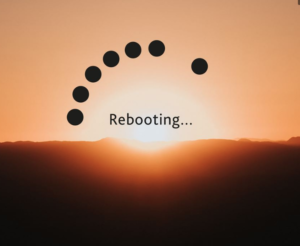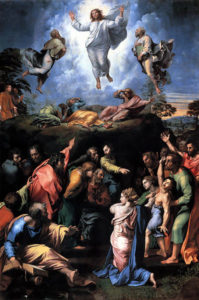
Drawn by Rev'd Caitlin Thompson
The Readings
Exodus 20.1-17
Then God spoke all these words:
I am the Lord your God, who brought you out of the land of Egypt, out of the house of slavery; you shall have no other gods before me.
You shall not make for yourself an idol, whether in the form of anything that is in heaven above, or that is on the earth beneath, or that is in the water under the earth. You shall not bow down to them or worship them; for I the Lord your God am a jealous God, punishing children for the iniquity of parents, to the third and the fourth generation of those who reject me, but showing steadfast love to the thousandth generation of those who love me and keep my commandments.
You shall not make wrongful use of the name of the Lord your God, for the Lord will not acquit anyone who misuses his name.
Remember the sabbath day, and keep it holy. For six days you shall labour and do all your work. But the seventh day is a sabbath to the Lord your God; you shall not do any work—you, your son or your daughter, your male or female slave, your livestock, or the alien resident in your towns. For in six days the Lord made heaven and earth, the sea, and all that is in them, but rested the seventh day; therefore the Lord blessed the sabbath day and consecrated it.
Honour your father and your mother, so that your days may be long in the land that the Lord your God is giving you.
You shall not murder.
You shall not commit adultery.
You shall not steal.
You shall not bear false witness against your neighbour.
You shall not covet your neighbour’s house; you shall not covet your neighbour’s wife, or male or female slave, or ox, or donkey, or anything that belongs to your neighbour.
New Revised Standard Version Bible: Anglicized Edition, copyright © 1989, 1995 National Council of the Churches of Christ in the United States of America. Used by permission. All rights reserved worldwide
The Sermon
By Joe P, St. Mary's
The content of today’s readings is pretty well known. The Ten Commandments, and the story of Jesus cleansing the temple. Now – spot quiz – at first glance, what do they both have in common?
I could do with a ‘Countdown Timer’ here….
Well, they both appear more than once in the Bible.
The list of commandments we know as the Ten Commandments occurs 3 times; Exodus 34 is the only place where the label "The Ten Commandments" is used in the Bible. The other two listings (Exodus 20 – tonight’s reading - and Deuteronomy 5) are normally referred to as the Ten Commandments, but the actual text doesn't describe them as such.
And cleansing the Temple – that appears once in each Gospel. The narrative occurs near the end of the Matthew, Mark and Luke’s Gospels, and near the start in the Gospel of John – our OTHER reading tonight.
Now, remember how I said ‘At first glance’ in my question? Well, some scholars believe that these refer to two separate incidents, tonight’s cleansing happening at the start of Jesus’s Ministry, and the other three Gospels describing a different event that took place at the end of Jesus’s ministry. I think that this is quite reasonable; John’s Gospel also features more than one Passover, so more than one visit to the Temple by Jesus would certainly happen.
So – why did Jesus behave like this? We know from his previous experiences that Jesus wasn’t a stranger to the Temple in Jerusalem; he once ended up there ‘on His Father’s business’, as he put it, when he was a boy, and we can understand his affection and respect for the Temple. The Temple was the Third Temple – the Temple of Herod, initiated by Herod to try and gain favour with the Jewish people. By the time today’s reading takes place, it’s still not complete – it would only be completed about 6 or 7 years before it’s destruction in 70 AD.
It’s worth taking a look at the context of why the animals were in the temple precincts anyway, and what the money changers actually were.
At Passover, people would come to Jerusalem from all over Israel – and from further afield as well. All worshippers at the Temple except women and children - would be expected to pay a half-shekel Temple Tax - worth about £2.50 at the current value of silver – and would also be expected to provide a sacrificial animal; a lamb or calf.
Now, the money had to be sanctified - Temple money. You couldn’t just give over any old cash. Each year different coins would be produced, and as a visitor you would exchange your currency for the Temple coins with which to pay the Temple Tax. This is where the money changers came in. Similarly, many people coming to Jerusalem would find it easier to buy a sacrificial animal on arrival, rather than bring one with them on a long journey.
There was also a risk associated with bringing your own sacrificial animal. Anything presented for sacrifice had to be of highest quality and would need to be approved by the Temple authorities before it could be sacrificed.
And here we find things get a bit messy, and potentially corrupt; money changers would charge a fee for each transaction they carried out. Sellers of sacrificial animals would sell at a much higher price than would be normally expected, and it was often suspected that the Temple authorities would be ‘encouraged’ by the sellers of sacrificial livestock to disapprove as many ‘out of town’ animals as possible. Quite a few opportunities for the world of commerce and human greed to come between a worshipper and God.
Initially, the animal dealers were based outside the Temple, in the valley of Kidron on the Mount of Olives, but eventually, by the time Jesus visits, they’ve moved in to an area of the Temple called the Court of the Gentiles – the part of the temple that is open to Gentiles as well as Jews. In other words, part of the worship space has become a combination of a bank and a cattle market.
In Mark’s Gospel, Chapter 11 Verse 17, we hear that the temple was designed to be a place of worship for all nations. Gentiles who wished to worship God could, in principle, do so in the Court of the Gentiles – however, this area was now not really fit for worship – and this is why Jesus is so angry. His Father’s house is not fit to be a place of worship for all nations, if the gentiles have to worship amidst animals and moneychangers.
There’s a general idea amongst people that here’s where we see ‘Rambo Jesus’ – wading in and whipping the people as well as the animals to get them out of the Temple Court. This is how it’s portrayed in at least one painting; but it’s not the case; the whip was used to drive the animals out, and Jesus turned over the tables over the money changers and generally ruined business for the day.
His disciples remembered what was said in scripture about the coming Messiah – that they would be overcome with zeal for the house of the Lord. Well, this meets the bill. The Jewish authorities, unsurprisingly, were less impressed and asked him on whose authority Jesus was asking. His answer – that he would be able to raise the Temple in 3 days – rather foxed them. But this answer, combined with the scriptural reference – was remembered by Jesus’s disciples after his death and resurrection, and reminded them again of the truth of the Scripture and of His teachings.
Temples are not just buildings. As Jesus pointed out – the body is a temple; even our human bodies.
Our Temple is our body, heart, mind and soul. The place where we meet with God.
What do we do in our temple to interfere with worship? Who are the sellers of sacrificial animals and temple money-changers in our hearts and minds? Maybe:
The noise and bustle of the market place of ideas
The sense that what we bring – our thoughts, feelings, our very body itself - isn’t clean enough, good enough or pure enough?
The sense that we need to change what we are for something else to become acceptable?
What can we do to cleanse our heart and mind to make accepting Jesus easier, to make worship and prayer easier?
We can bring Quiet in to our hearts.
We can accept and embrace the we’re broken; we’re fallen; we will never be perfect. That’s fine. We just try not to sin; be repentant. It’s an ongoing process; try again, fail again, try again. Keep at it. That’s how we are – that’s how God expects to find us. Be yourself and present yourself to Jesus humbly, throwing yourself on his grace and mercy.
We are unique; we are made in the image of God. There is nothing in what we are to change, just how we behave.
Driving out these distractions and impediments to worship from OUR temple is not easy. I feel I’d have more luck with shifting sheep and cows and overturning a few tables than I would in controlling and disciplining my occasionally unruly heart and head.
But, we need to make our temple suitable for worship of the Lord.
May our equivalent of whips and table turning be effective.
The Prayers
Prepared by Siobhan H
As we journey together through the season of Lent, Gracious God we ask that you help us on the path of repentance and renewal.
Faithful God,
We pray for all who share in the ministry of this community, that they bring compassion and understanding to all those in need. As Sue prepares to be licensed as Priest in Charge and Matthew Associate Priest, we ask that you grant them the wisdom, understanding and strength they need to fulfil their call. May they have joy in their ministry and be enabled to have times of rest and retreat. Inspire them and the laity with vision and commitment, so they may be instruments of your divine grace and love.
We pray to the Lord
Lord hear our prayer
Creator God,
Thank you for the lengthening of days, for the coming of growth, life and birth. Help us to appreciate the wonders of our world and create in us a desire to care for our environment for the benefit of future generations and all your creatures.
We pray to the Lord
Lord hear our prayer
Loving God,
As schools fully reopen next week we pray for teachers, students, and their families that you would ease any anxiety about going back to school they may have. Especially we pray for our church school of St Mary’s. May it be a place where every child matters, where healthy relationships are formed, knowledge acquired and positive memories made.
We pray to the Lord
Lord hear our prayer
Everlasting God,
We pray for all who are sick in mind, body or spirit and for the nurses and professionals who care for them. For all people in our local nursing homes; may the palm crosses and cards we are preparing to send remind them of their great worth. For those at home being cared for by loved ones; that they may be supported by their community and know your loving presence close to them. Be with those meeting this week from our churches, as they seek to find ways to support those with a dementia diagnosis and their carers.
We pray to the Lord
Lord hear our prayer
Merciful God,
We pray for those we love but see no longer. Grant them your peace, let perpetual light shine upon them. May they rest in peace and rise in glory.
We remember before God those who have died recently especially Diane Gascoyne.
Bless all who mourn with the comfort of your love.
In a moment of silence we pray for own prayer intentions.
Merciful Father,
accept these prayers
for the sake of your Son
our Saviour Jesus Christ.
Amen





![13 –assuming no text [Joyce G] WP_20180310_15_12_54_Pro](https://stmaryswalkley.co.uk/wp-content/uploads/2021/01/13-assuming-no-text-Joyce-G-WP_20180310_15_12_54_Pro-300x169.jpg)

